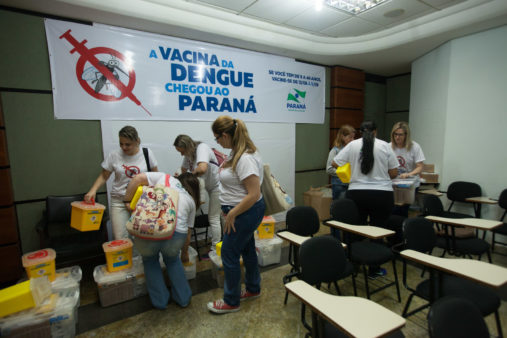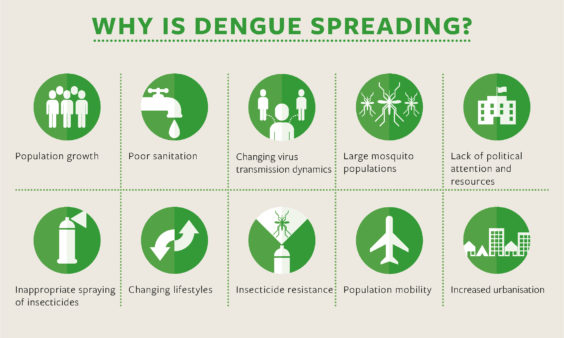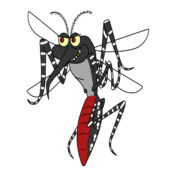- by Gary Finnegan
Dengue protection: what you need to know

New online medical training module explores the role of vaccine in dengue protection
For people living in, or traveling to, areas affected by dengue fever, protection is vital. The most effective ways to reduce the risk of infection have, for decades, been the use of insect repellents and measures to disrupt the mosquito lifecycle.
In recent years, we’ve entered a new era in dengue protection with the arrival of the world’s first dengue vaccine, the first dengue vaccine program, and trials of friendly mosquitoes (genetically-modified mosquitoes). The latter approach is showing promise but more research will be done before it considered for widespread use.
Meanwhile, the first dengue vaccine has been approved in 16 countries and several other dengue vaccines are on the horizon. How best to integrate this new tool into the dengue protection arsenal remains a challenge.
To help manage everything from vaccine delivery to tackling false rumors about vaccine safety, Agence de Médecine Préventive (AMP), a Paris-based NGO with scientific and technical expertise in vaccination, has produced a Dengue Vaccination Toolkit targeting policymakers and vaccine program managers.
But what about doctors? Where can doctors find technical information about dengue vaccination to satisfy their own intellectual curiosity and help answer patients’ questions.

Medical education
Well, now MedScape, a leading source of online information for health professionals, has produced a 45-minute educational module entitled Dengue vaccination: a long-awaited advance in protection.
The continuing medical education (CME) module features four senior experts in dengue fever from Brazil, Mexico, Malaysia and the Philippines. The group looks at the burden of dengue fever and the need for better preventative measures.
‘Incidence is increasing globally,’ says Dr. Marco Safadi, a pediatrician based in Sao Paolo who leads the discussion. ‘Dengue is now the major mosquito-borne illness globally: between three billion and four billion people live in areas where dengue is present.’
The World Health Organization supports the use of dengue vaccines in areas of high burden. However, uptake of the first vaccine has been slower than expected due to a combination of factors. The experts featured in the MedScape educational session called for a ‘paradigm shift’ in how we think about vaccines. They note that the value of vaccines goes beyond preventing infections; it can include reducing the severity of disease and reducing disruption to health services by controlling the scale of outbreaks.
Vaccine confidence
Negative media coverage of vaccination can damage vaccine confidence and reduce the uptake of vaccines. This is a problem that several dengue-endemic countries have faced when considering introducing the vaccine.
Dr. Zulkifli Ismail, Past President and Current Secretary-General of the Asia Pacific Pediatric Association (APPA), said the dengue vaccine has been introduced on the private market in Malaysia but the spread of false rumors online had a negative impact on public perceptions.
A survey of attitudes to dengue vaccination in Malaysia revealed two things: that dengue is a huge public health issue; and that the vaccine faces several major challenges. Of the 799 people who responded to a mobile phone-based survey, 16% reporting having dengue in the past and 73% reported having a friend or relative who had been affected.
 However, only 27% knew a vaccine available and one-fifth of these said they would not have the vaccine due to concerns about a lack of data or safety issues. ‘Primary care physicians and other doctors need to educate themselves and be convinced that the vaccine works so that this sentiment can be conveyed to the patients and cascade down to the public,’ according to Dr. Ismail.
However, only 27% knew a vaccine available and one-fifth of these said they would not have the vaccine due to concerns about a lack of data or safety issues. ‘Primary care physicians and other doctors need to educate themselves and be convinced that the vaccine works so that this sentiment can be conveyed to the patients and cascade down to the public,’ according to Dr. Ismail.
The Philippines has faced similar issues, with some negative media coverage of vaccine resistance from some politicians. In other regions, including Parana State in Brazil, public authorities have launched proactive campaigns to bring the vaccine to the public free of charge and provide health professionals with the information required to reassure patients.
Huge untapped potential
The session closed by noting that dengue puts significant pressure on health systems in countries where the disease is endemic. The arrival of dengue vaccines could be a game-changer for dengue protection, as part of a wider integrated strategy to control the circulation of mosquitoes.
—
Improve dengue surveillance in your area. Click below to report an incidence of dengue with Dengue Track.

